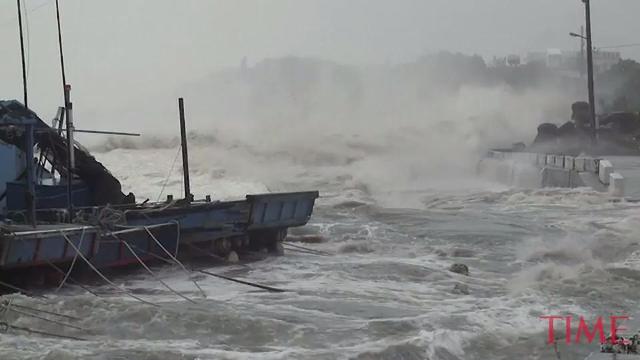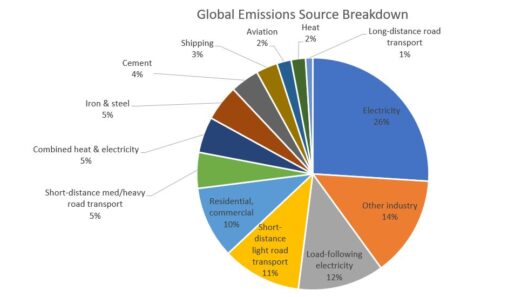In recent years, there has been an uptick in the discourse surrounding hurricanes and their correlation with climate change. Many assert that with each passing hurricane season, the increasing ferocity and frequency of storms are emblematic of a planet in peril. Yet, curiously, there exists a substantial contingent of skeptics who question this nexus. So, why the disparity in perspective? Is it merely the allure of sensationalism in media narratives, or is there a legitimate basis for skepticism?
The conversation often pivots on how warmer sea surface temperatures are purported to energize hurricanes, making them more powerful. Indeed, numerous studies have shown that as global temperatures climb, ocean heat content also rises. Warm water serves as the fuel for tropical cyclones; thus, one could argue that a warmer planet may lead to more intense storms. This reasoning seems straightforward, doesn’t it? However, delving deeper reveals a labyrinth of variables that complicate the picture.
One key factor is that while there might be a correlation between rising sea temperatures and storm intensity, correlation does not equate to causation. Hurricane patterns are governed by a multitude of elements, including atmospheric conditions, wind shear, and moisture levels. These components can fluctuate independently of long-term global warming trends. Skeptics argue that attributing individual hurricanes exclusively to the phenomenon of climate change oversimplifies an inherently complex system.
Another dimension of this debate involves historical context. For centuries, humans have recorded incident reports of hurricanes. Analyzing these records, one finds that many regions affected by hurricanes have shown cyclical patterns that persist irrespective of anthropogenic climate influences. Some researchers posit that natural climatic oscillations, such as El Niño and the Atlantic Multidecadal Oscillation, play substantial roles in shaping storm activity and could account for variations that modern climate models struggle to capture. It begs the question: Could it be that we are witnessing a resurgence of a natural cycle rather than the consequences of climate change?
Moreover, meteorological advancements complicate matters further. In the modern era, with improved technology like Doppler radar and satellite imagery, our capacity to detect and document hurricanes has markedly increased. Consequently, this heightened scrutiny can lead to perceptions of a rise in storm occurrences. Statistically, an increase in the observed intensity and frequency of hurricanes over the past several decades may not reflect a real trend but rather an artifact of greater observational prowess. If we had the same tools a century ago, would we have recognized a different pattern entirely?
Even within the scientific community, differing interpretations abound. Some climatologists argue that while it is plausible that climate change is exacerbating certain storms, it is not the definitive or driving force behind a significant portion of hurricane dynamics. The dialogue becomes intricate when one considers regional anomalies, whereby some locales experience unprecedented storms while others remain relatively unscathed, leading to questions about the uniformity of global warming’s effects.
The implications of this skepticism carry weighty consequences. If a community or government perceives hurricane threats as exaggerated due to a climactic lens, it could lead to misallocated resources regarding disaster preparedness and response. Conversely, overstating the link could catalyze policies or interventions that may not address the root causes of vulnerability in storm-prone areas. As with all scientific inquiries, balance and reasoned discourse are vital in conceiving effective solutions.
However, one must also contend with the poetic irony embedded in this debate. The indifference toward the potential ramifications of climate change invites perilous complacency. Climate change may not be the sole architect of increased hurricane intensity, but its role as a contributing factor cannot be lightly dismissed. The risk is that some might cling to skepticism as a justification for inaction when proactive measures are critically warranted.
Inherently, the challenge becomes multifaceted: How do we balance valid skepticism with the necessity for action? It is not simply about assigning blame or seeking to vindicate climate change; rather, it is about cultivating an informed populace capable of discerning complexity amidst simplicity. Tornadoes and hurricanes are part and parcel of Earth’s climatic tapestry, but as the narrative unfolds, distinguishing the threads woven by natural variability from those dyed by human activity remains pivotal.
Engagement in this discourse should not be relegated to the intellectual elite. It should permeate community dialogues, educational systems, and policy frameworks. Empowering citizens with knowledge equips them not only to respond to the immediate threats posed by hurricanes but also to advocate for broader action against climate degradation. Empowerment through education serves as a bulwark against misinformation and paralysis by analysis.
In conclusion, the question of whether climate change is causally linked to intensified hurricanes presents a conundrum that merits rigorous exploration. While skepticism is a healthy component of scientific discourse, it is essential that it does not morph into denialism. Each storm serves as a reminder of our planet’s volatility. Our reactions cannot be dictated solely by skepticism but rather balanced with caution and preparedness. As stewards of this planet, a cohesive response—rooted in science, tempered by debate, and driven by action—is indispensable.







